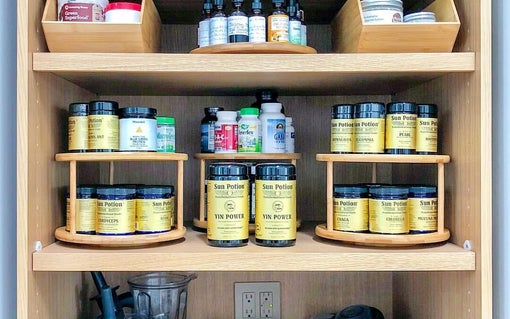Pescatarian Vitamin Supplements Adopting a pescatarian diet is a fantastic way to enjoy the health benefits of seafood while still incorporating plant-based nutrition. However, ensuring you get all the necessary vitamins and minerals can sometimes be challenging. Pescatarian vitamin supplements are specifically designed to bridge the nutritional gaps, providing essential nutrients like omega-3 fatty acids, vitamin B12, and iron that can support overall health and energy levels. For those who avoid dairy, supplements with added calcium and vitamin D can help maintain bone health without compromising dietary preferences.

Important Notes
- Quality of Supplements: Choose high-quality, reputable brands for supplements.
- Dosage: Follow recommended dosages and be cautious of exceeding upper limits with fat-soluble vitamins (A, D, E, K).
- Diet First: Aim to get as many nutrients as possible from a varied and balanced diet before turning to supplements.
By ensuring you have a well-rounded intake of these key vitamins and minerals, you can support your health effectively.
Vitamin B12
- Reason: Vitamin B12 is primarily found in animal products. While fish and seafood do contain B12, if your fish intake is low, you might be at risk of deficiency.
- Sources: Supplements, fortified foods (like cereals and plant-based milks).
Vitamin D
- Reason: Vitamin D is crucial for bone health and immune function. It is synthesized in the skin through sunlight exposure, but dietary sources can be limited.
- Sources: Fatty fish (like Salmon and Mackerel), fortified foods, supplements.
Omega-3 Fatty Acids (EPA and DHA)
- Reason: Essential for heart health, brain function, and inflammation control. Fish is a good source, but if your intake is inconsistent, supplementation may be beneficial.
- Sources: Fish oil supplements, algal oil (a plant-based source of DHA).
Iron
- Reason: Non-meat eaters can have lower iron stores. While fish contains iron, which is better absorbed than plant-based iron, additional supplementation might be necessary if fish intake is low.
- Sources: Iron Supplements, fortified foods, plant-based sources with vitamin C to enhance absorption.
Iodine
- Reason: Essential for thyroid function. Fish and seafood are good sources, but if your diet is low in these, you might need supplementation.
- Sources: Iodized Salt, seaweed, supplements.
Calcium
- Reason: Important for bone health. If you do not consume dairy, you might need to ensure adequate intake from other sources or supplements.
- Sources:, Fortified Plant Based Milks, leafy greens, supplements .
Zinc
- Reason: Important for immune function and wound healing. Fish provides zinc, but if intake is variable, supplementation might be necessary.
- Sources: Zinc supplements, fortified foods, plant-based sources (though these are less bioavailable).
Vitamin A
- Reason: Important for vision and immune function. Beta-carotene from plant sources needs to be converted to active
- Vitamin A, and some individuals may need supplements.
- Sources: Supplements, fortified foods, a variety of colourful fruits and vegetables.
Selenium
- Reason: Important for thyroid function and antioxidant defense. Fish and seafood are good sources, but additional supplementation might be considered if intake is low.
- Sources: Selenium supplements, Brazil nuts, seafood.
Personalized Advice
While these suggestions provide a general guideline, individual needs can vary based on factors such as age, gender, health status, and specific dietary patterns. It is always best to consult with a healthcare provider or a registered dietitian to tailor supplement recommendations to your specific needs and to conduct any necessary tests.